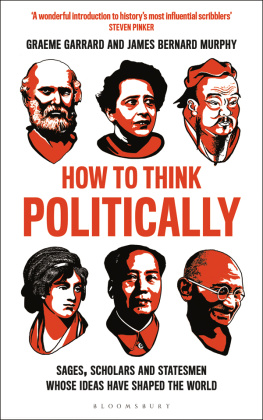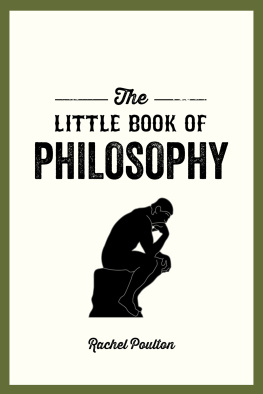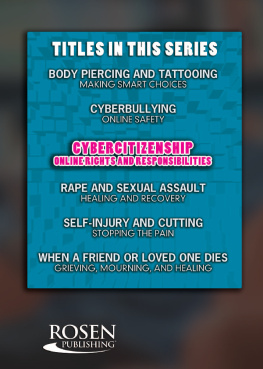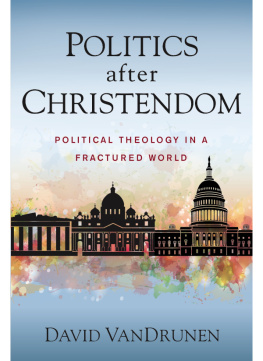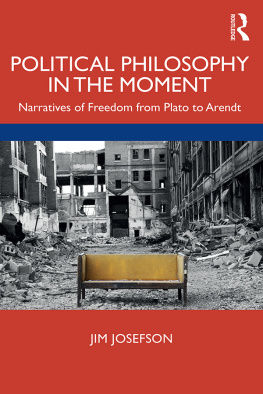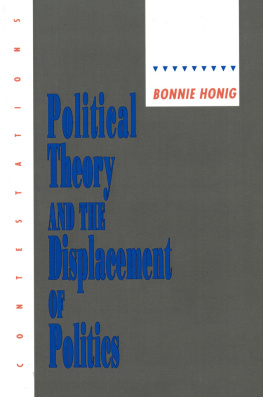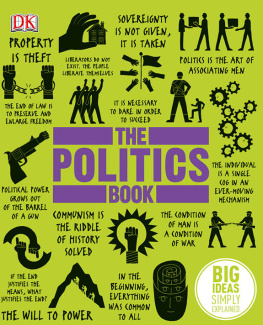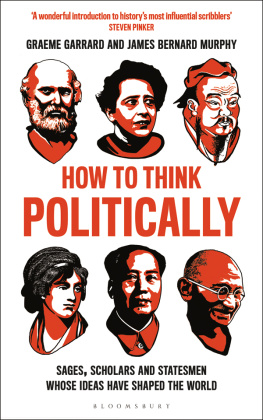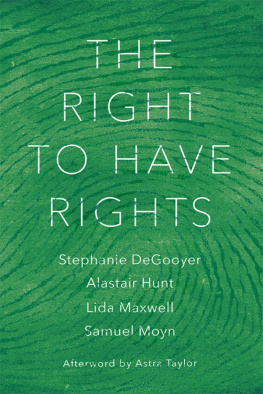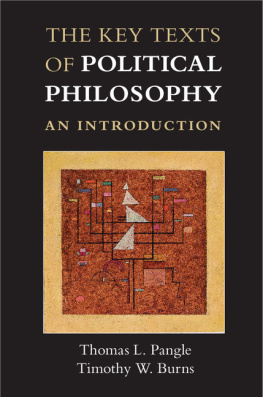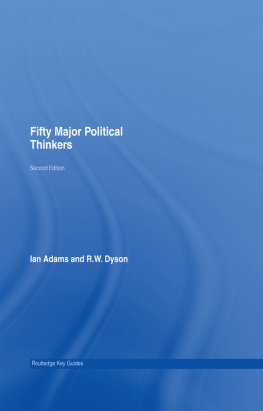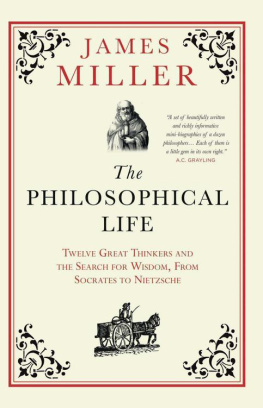
HOW TO THINK
POLITICALLY
To Our Students: Past, Present and Future
CONTENTS
Confucius | 551479 BC |
Plato | c . 428 c . 347 |
Aristotle | 384322 |
Augustine | ad 354430 |
Al-Farabi | c . 872 c . 950 |
Maimonides | 1135 or 11381204 |
Thomas Aquinas | 12251274 |
Niccol Machiavelli | 14691527 |
Thomas Hobbes | 15881679 |
John Locke | 16321704 |
David Hume | 17111776 |
Jean-Jacques Rousseau | 17121778 |
Edmund Burke | 17291797 |
Mary Wollstonecraft | 17591797 |
Immanuel Kant | 17241804 |
Thomas Paine | 17371809 |
G.W. F. Hegel | 17701831 |
James Madison | 17511836 |
Alexis de Tocqueville | 18051859 |
John Stuart Mill | 18061873 |
Karl Marx | 18181883 |
Friedrich Nietzsche | 18441900 |
Mohandas Gandhi | 18691948 |
Sayyid Qutb | 19061966 |
Hannah Arendt | 19061975 |
Mao Zedong | 18931976 |
Friedrich Hayek | 18991992 |
John Rawls | 19212002 |
Martha Nussbaum | 1947 |
Arne Naess | 19122009 |
It is fashionable today to describe politics as a swamp. For many it has become nothing more than a vulgar spectacle of deceit, ambition and opportunism. Trust in our political institutions and leaders has sunk to new lows, and politicians are held in greater contempt than for generations. Voter anger and disenchantment are growing at an alarming rate. Distracted by all the unseemly squabbling of politics, we end up allowing markets and bureaucrats to make decisions for us, leaving citizens resigned and alienated from politics-as-usual. It is very hard to imagine that ideas, let alone ideals, could play any part in all of this.
But politics has always been a messy business, governed more by expediency and compromise than by lofty ideals and principles, however much lip-service is paid to the latter. It is usually a very rough and nasty game, a Game of Thrones, dominated by conflicting interests, emotions, wealth and power. Much of the time its just a low-down, dirty business, an evil-smelling bog, as one nineteenth-century British politician (the prime minister Lord Rosebery) called it. So shameful is political manoeuvring that it has largely been conducted behind closed doors: no decent person, it has been said, wants to observe sausages or laws being made.
This common view of politics is partially true, but it is not the whole truth. Perhaps more than in any other arena, politics shows humans at their worst and their best. We are all too familiar now with the worst; our book reminds readers of the best in an age when it is not often apparent, but when it needs to be, given what is at stake. In what follows we will show how politics is actually a place where ideas and ideals meet concrete reality, and where great words and great deeds mix with base motives and low intrigue.
At its best, politics can be a great and civilizing human activity, as the political theorist Bernard Crick described it in his defence of the art. It is the alternative to controlling people by force or fraud alone. Crick is right that politics can be and has been used for good and deliberate ends, and history provides abundant examples of this. It is capable of a moral nobility and an intellectual depth foreign to the present age of reality TV and government by Twitter, as you will see in what follows. Politics is the arena in which the fate of our planet will be decided. That is why, as citizens, we have a responsibility to engage with politics. To paraphrase Leon Trotsky: you may not care about politics but politics cares about you.
We assume that citizens should be informed. But they also need to be knowledgeable and even wise. Today we are inundated with information but knowledge and wisdom remain as scarce as ever. Thanks to the miracles of digital technology, we are drowning in oceans of data, facts and opinions. What we need now is not more information but more insight, not more data but more perspective, not more opinions but more wisdom. After all, much of what is called information is actually misinformed, and most opinions fall short of true knowledge, let alone wisdom. Even a superficial glance at the state of contemporary politics will dispel any illusion that the explosion of information has led to wiser citizens or politicians or improved the quality of public debate. If anything, misinformation is winning out over knowledge.
How to Think Politically will help you to move beyond political information to acquire knowledge and, from there, wisdom. Information is about facts and is specific. Knowledge is more general and implies understanding and analysis. Wisdom is the highest and deepest form of insight into the reality of something. We invite you to eavesdrop upon a set of conversations among the wisest students of politics in history. In 30 short chapters you will be introduced to a diverse and fascinating cast of characters, ranging from Confucius, the wandering sage of ancient China, to Arne Naess, the modern mountaineer and ecologist, from Al-Farabi, the Muslim imam, to Hannah Arendt, the exiled German Jewish intellectual, and from Plato, the Greek philosopher, to John Rawls, the American professor.
In this book we interweave stories from the life and times of each thinker with discussion of their key insights about politics, broadly understood. All of them attempted to distil the political information of their age into genuine knowledge and to turn that knowledge into general wisdom about how to live well, as individuals and as communities. We have chosen 30 of the wisest and most influential political thinkers in history from Asia, Africa, Europe and America. We conclude each chapter with reflections on the wisdom that each sage offers for todays political challenges.
A simple Google search will unearth an immense amount of information about the lives and ideas of these thinkers. It makes sense to start with some basic facts and opinions. But many of us crave more than that. We want to range wider and dig deeper, and to integrate all that information into a coherent and compelling understanding of politics. With over 50 years of scholarship and teaching between us, we have synthesized vast amounts of historical data and philosophical reflection into a single volume. Rather than bury you with more facts, our purpose here is to introduce you to many of the greatest political minds and ideas in history to stimulate your interest and spark your imagination.
Politics is more than merely the clash of interests. Ideas play a decisive role in human affairs, which are never purely practical. Nowhere is this more obvious than in the founding of the United States, which was as much a battle of ideas as it was a battle of arms, as were the French and Russian Revolutions. And the recent populist revolt in the West against globalization, Islam and immigration is a struggle over identity and values no less than of power and interests. Thats why ideas and concepts have in some form been debated in every political system that has ever existed. The point where ideas meet reality is often a place of both cooperation and conflict, of idealism and cynicism, of hope and despair. It is there that philosophy can shed the most light on politics. Without such light, it really is just a darkling plain where ignorant armies clash by night.
Next page
